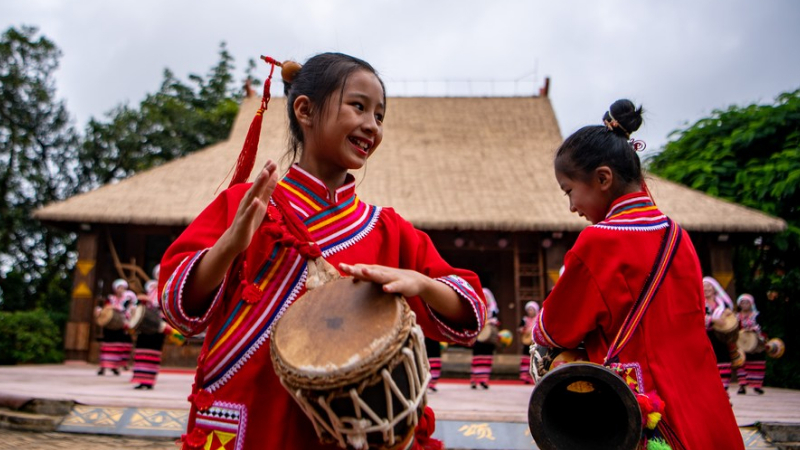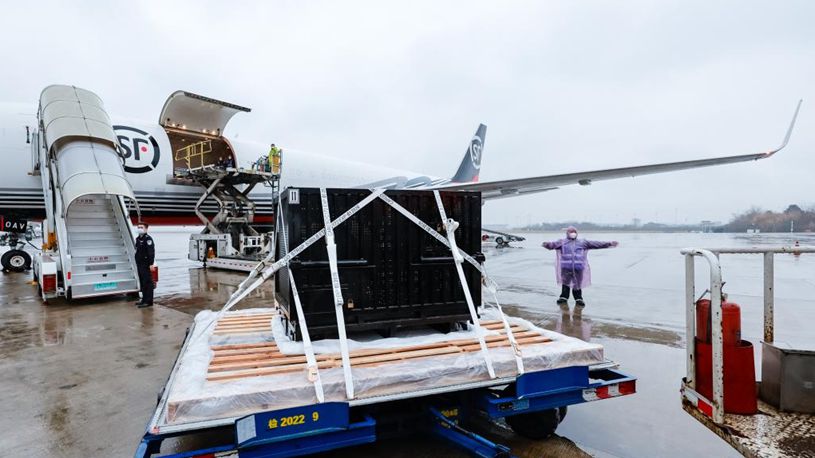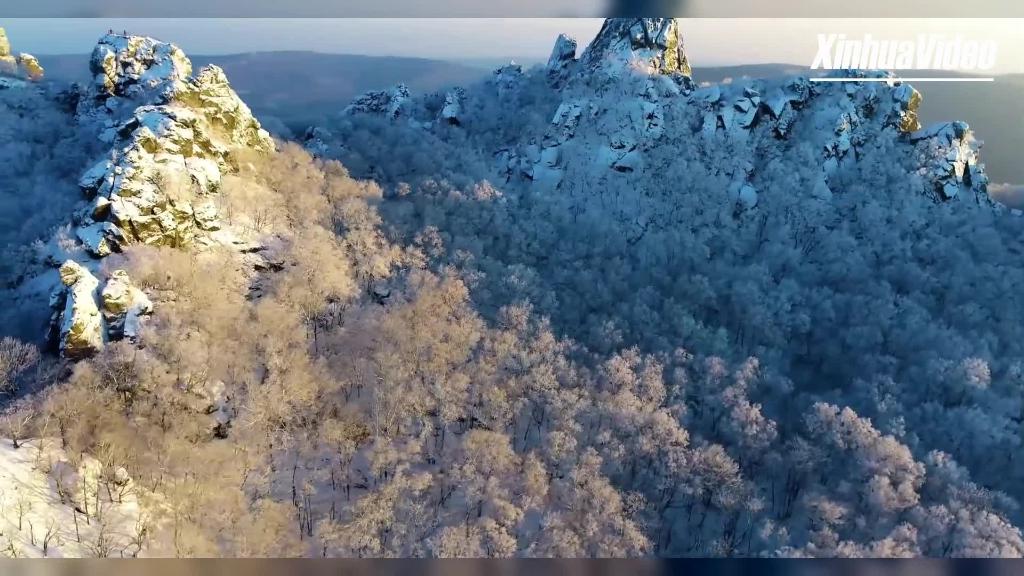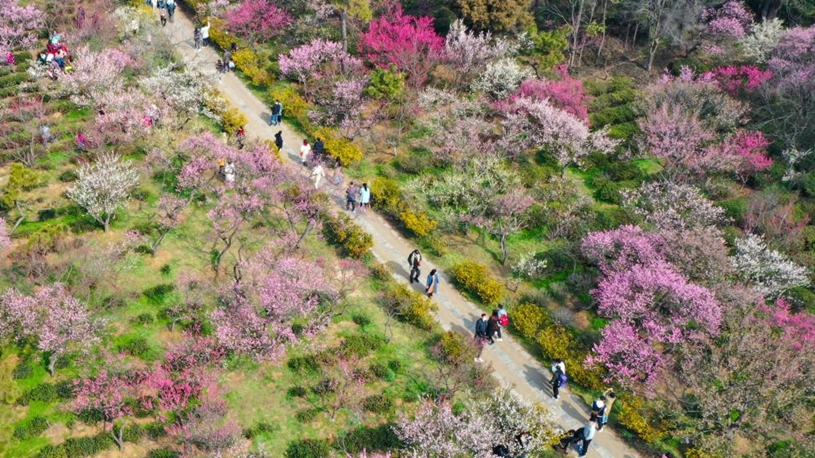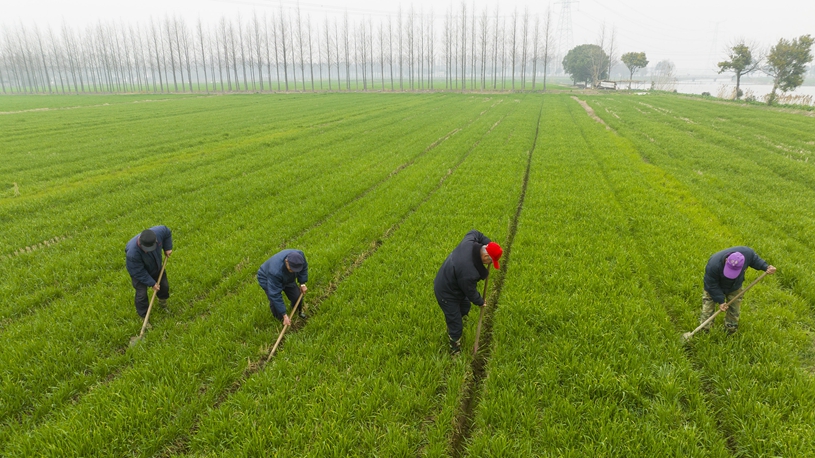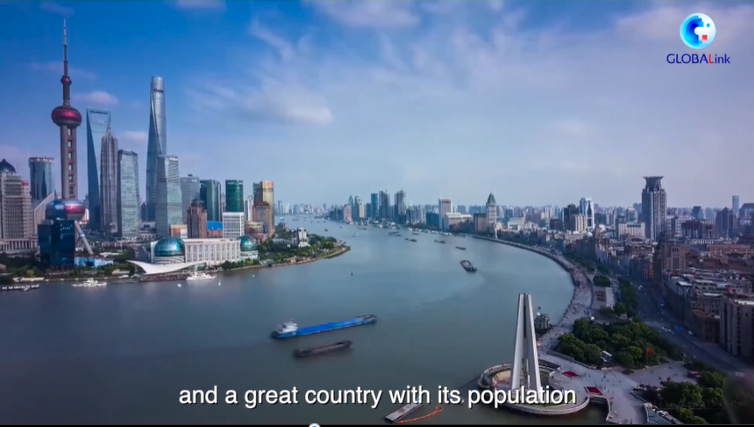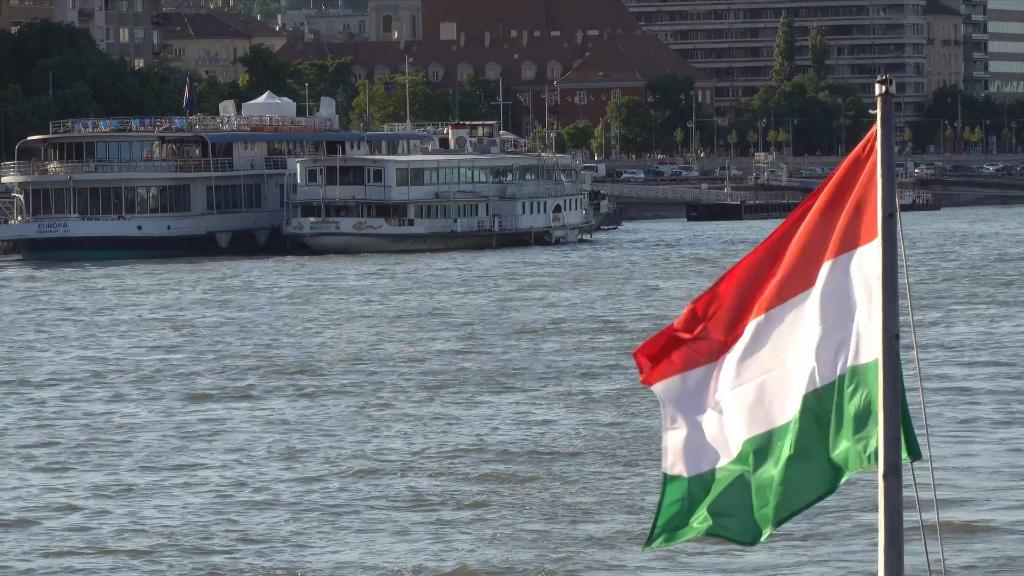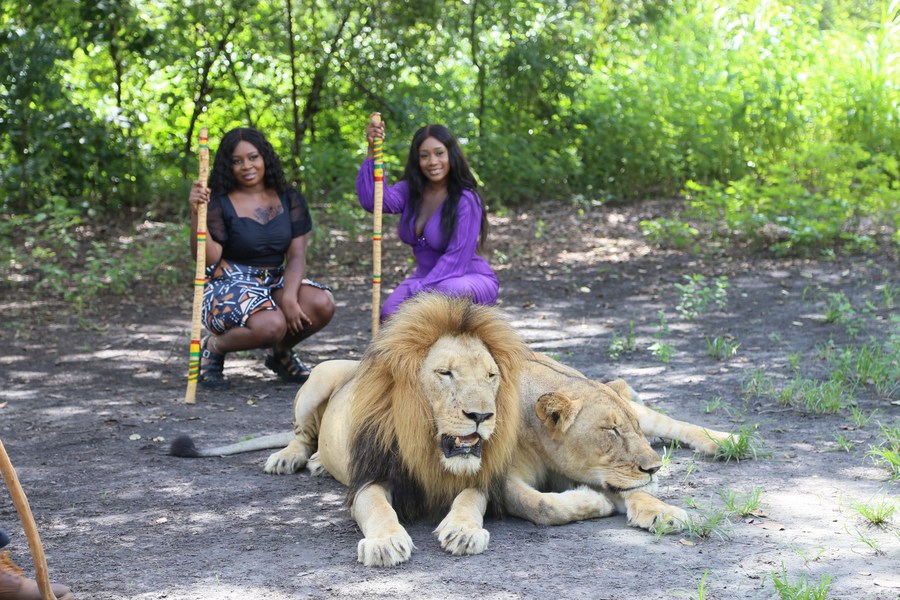
Tourists pose for photos with lions at a safari park in the Saloum Delta region of Senegal, Sept. 16, 2022. (Xinhua/Wang Zizheng)
Tourism -- along with mining, construction and fishing -- is a vital part of this West African country that boasts several national parks, UNESCO World Heritage sites, tranquil sandy beaches, camping locations and bird-watching hotspots.
by Martina Fuchs
DAKAR, Feb. 25 (Xinhua) -- Senegal, Africa's westernmost country and a former colonial trading post, is counting on ecotourism and its biodiversity jewels to attract foreign visitors to help develop its economic potential in the aftermath of the COVID-19 pandemic.
With a population of roughly 17 million, the French-speaking country borders Mauritania, Mali, Guinea and Guinea-Bissau.
RECOVERING TOURISM
Industry consultancy Tourism Economics estimated that travel and tourism represented roughly 9 percent of the country's GDP in 2019, contributing 800 million U.S. dollars to the economy.
However, the global pandemic closed borders and brought West Africa's tourism industry to a standstill three years ago.
"Since last year, tourism in Senegal is recovering. That's why it's very difficult to find even a single hotel room. Everything is fully booked at the moment. The demand is much higher than the offer," Mamadou Cisse, manager of Senegal Global Tours told Xinhua.
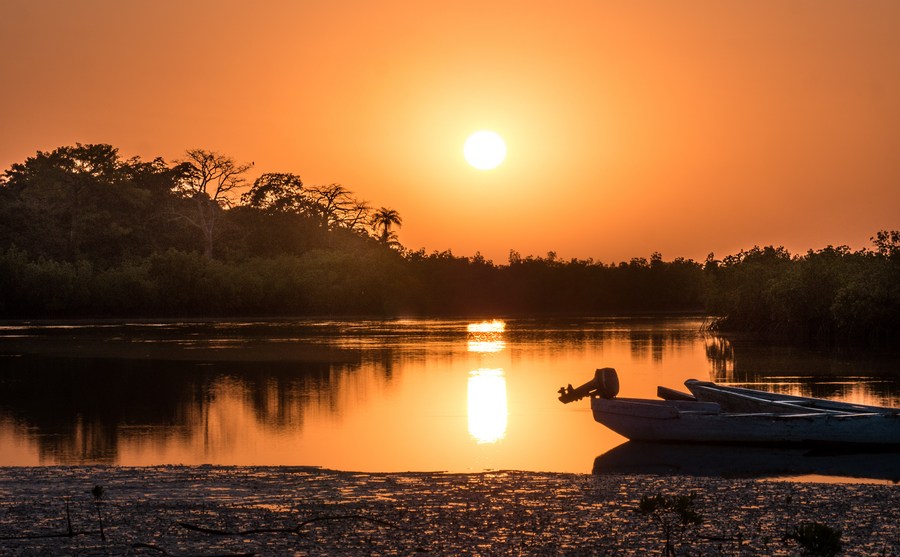
Photo taken on Dec. 27, 2019 shows the sunset near Oussouye, Casamance, southern Senegal. (Photo by Louis Denga/Xinhua)
Tourism -- along with mining, construction and fishing -- is a vital part of this West African country that boasts several national parks, UNESCO World Heritage sites, tranquil sandy beaches, camping locations and bird-watching hotspots.
"The outlook is very positive because we have many investors now," Cisse said. "Many countries are interested in investing in Senegal's oil and gas industry, plus the tourism sector."
Located 65 km from Senegal's capital Dakar is the Bandia wildlife reserve, another ecological treasure of the country covering an area of 3,500 hectares.
It is home to many of Africa's big animals, such as giraffes, zebras, white rhinos, crocodiles, buffalos, antelopes, ostriches and over 120 species of birds.
"Most of the animals are imported from South Africa but some of them are native ... The only carnivores are hyenas and crocodiles, and all the other animals are herbivorous," tour guide Alassane Sow told Xinhua in the shade of a baobab tree.
International travellers were slowly but surely coming back, Sow said.
"Chinese visitors like to go to Australia and New Zealand. A major attraction is Europe ... I think there is a tendency to go further afield now," said Julia Simpson, president and CEO of the London-based World Travel & Tourism Council, who believes there's a trend of travelling in the Indian Ocean, the Maldives, and Mauritius.
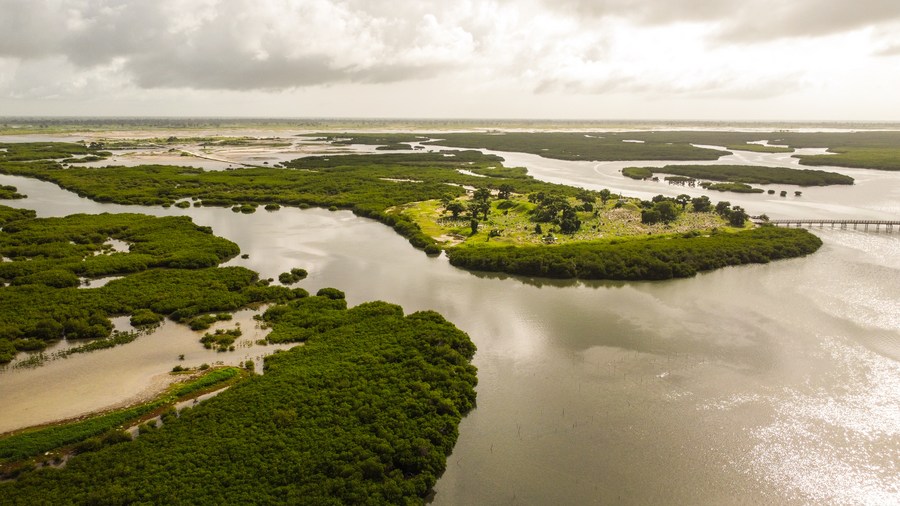
Aerial photo taken on Aug. 30, 2020 shows an island of the Fadiouth town, surrounded by mangroves in the Sine-Saloum Region, Senegal. Senegal is a hot tourist spot for Europeans and many Africans. (Xinhua/Louis Denga)
WETLANDS REQUIRE PROTECTION
Sine-Saloum is one of the nine sites in Senegal designated as Wetlands of International Importance (Ramsar Sites), with a surface area of 159,137 hectares.
In total, the country has some 185,000 hectares of mangrove estuaries mainly in the regions of Casamance and Sine-Saloum, but they have been disappearing at an alarming rate.
"The wetlands are the green lung of our country," Cisse said. "We have to do everything we can to protect them for us and our future generations."
A quarter of the total surface area of mangroves in Senegal has already been lost since the 1970s due to cycles of droughts, deforestation of mangroves for timber, and the blockage of waterways by road construction.
Dr. Musonda Mumba, secretary general of the Convention on Wetlands, told Xinhua that indigenous and traditional people "have depended on this wetland ecosystems for medicine, for food, for fish, but also really the microclimate of this region."
"We've seen how climate change has affected this region, all the droughts and very extreme weather events. As a result, we'll begin to see what it means when we lose wetlands." ■

